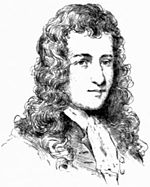chosen principal of the Maine Wesleyan seminary, Kent's Hill, Me. In 1837 he served as an assistant to Dr. Charles I. Jackson on the first geological survey of Maine. About 1840 he was elected frofessor of mathematics and natural science in ndiana Asbury university (now Depauw university). He remained in this post and as professor of mathematics alone till 1852. and on his retirement from it became emeritus professor of oriental languages and literature. During one year he served as acting president, and made a thorough revision of the course of study. In 1852 he was elected to be the first superintendent of public instruction of Indiana, and reorganized the school system of the state. He retired from the office at the end of 1854, and after an interval of a single term was elected to a second term in 1856. Prof. Larrabee was one of the pioneer high-school teachers in the Methodist Episcopal church. The denomination had very few schools when he began his career, and educated men among its ministers were the exception. Nearly all of the colleges and seminaries that the church now possesses were established after he was born, and the earlier ones were controlled, during a whole generation, by persons that had been under his instruction. He was a contributor to the " Ladies' Repository" (if Cincinnati, and served as its editor in 1852. He was the author of " Scientific Evidences of Natural and Revealed Religion " (Cincinnati, 1850) : "Wesley and His Co-Laborers" (2 vols., 1851); "Asbury and His Co- Laborers " (2 vols.. 1853); and "Rosabower," a collection of essays and miscellanies, mostly made up from his contributions to the "Ladies' Repository" (1854).

|
LA SALLE, Robert Cavelier, Sieur de, French explorer, b. in Rouen, 22 Nov., 1643; d. in Texas, 20 March, 1687. He was of an honorable burgher family, in early life became connected with the Jesuits, and seems to have taught in their schools; but he soon left them, and in 1666 went to Canada to seek his fortune. The priests of the Seminary of St. Sulpice, feudal owners of the island of Montreal, granted him a tract of land at an exposed and dangerous place, to which, in mockery of his schemes, was afterward given the nickname of La Chine. These schemes involved no less than the discovery of a way to China across the American continent. In 1669 La Salle sold his new estates, and set out on his tour of western exploration in company with two Sulpitian priests, who were bound for the upper lakes. He soon left them, and with a few followers made his way southward and westward, discovered the Ohio, and descended it as far at least as the rapids at Louisville. A year or two later he made another journey, ascended Lake Michigan, and crossed thence to the Illinois. It is maintained by some that he descended this river to the Mississippi, thus anticipating the discovery of Marquette and Jolliet; but the weight of evidence inclines to the belief that he visited only the upper part of the Illinois. In 1673, on the recommendation of Count Frontenac, governor of Canada, La Salle obtained a patent of nobility and a grant of Fort Frontenac, with adjacent lands. This post had just been established at the site of the present city of Kingston, on Lake Ontario. It was well situated for the fur-trade, and La Salle was now in a fair way of enriching
